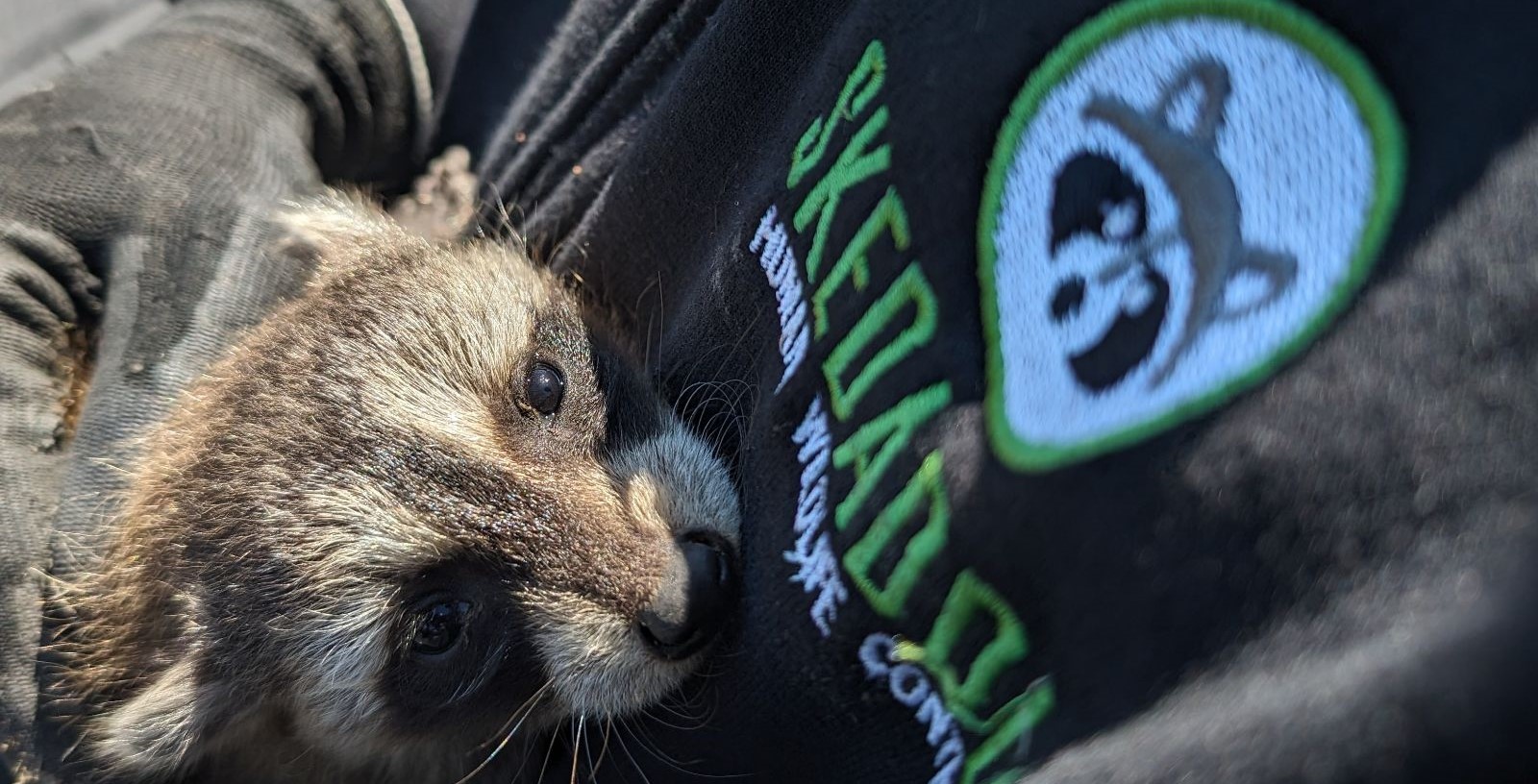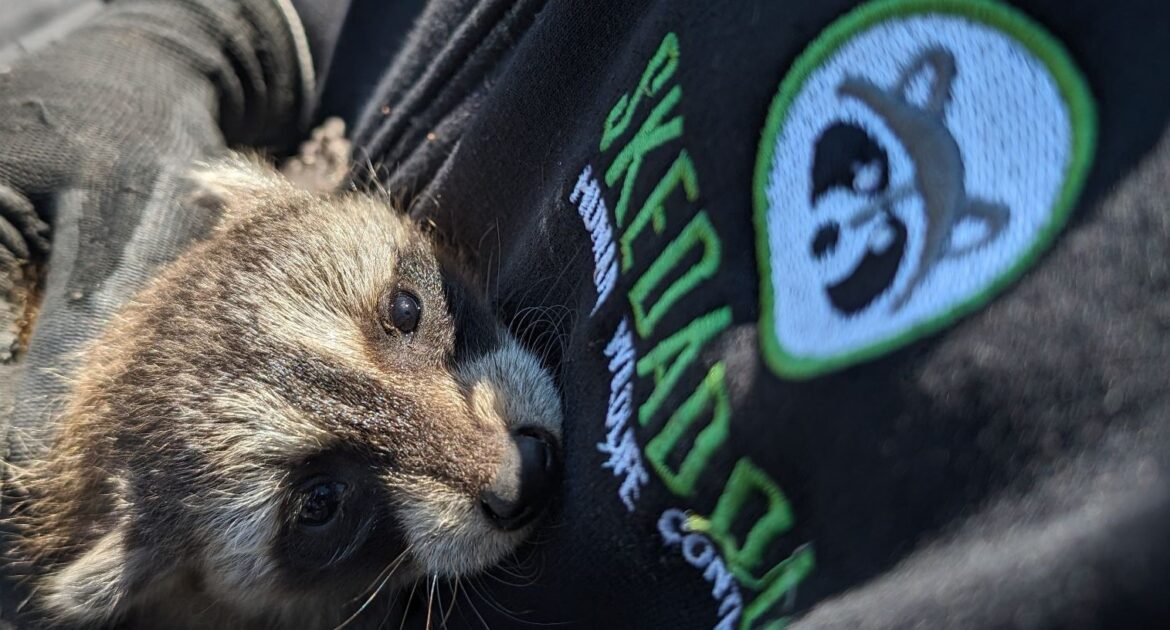If you’ve ever spotted those masked bandits rummaging through your trash at night, you know just how clever raccoons can be. These adaptable creatures thrive in all sorts of environments, from the wild forests to busy city streets, and it’s no different here in Waterloo. Their secret? An omnivorous diet that lets them eat just about anything – fruits, nuts, trash, and even small animals.
Understanding what raccoons eat is key to managing their presence, especially in places where our homes and their habitats overlap. If you’re a homeowner in Waterloo, figuring out what attracts these nighttime raiders to your yard is the first step to keeping them at bay. Uncovered trash bins, pet food left outside, and easily accessible vegetable gardens can all make your yard an irresistible buffet for raccoons, leading to potential damage and unwanted conflicts.
So, how do you keep raccoons out of your yard? It starts with securing food sources and using humane wildlife control measures. By taking these steps, you can help restore the balance between human and animal residents in your area. Whether it’s locking down your garbage or bringing in the experts when needed, understanding and addressing what draws raccoons to your space is crucial for effective wildlife control in Waterloo.
Raccoon Dietary Habits: The Ultimate Opportunists
Raccoons, with their mischievous faces and nimble hands, are true survivalists in the realm of urban and rural munching. Their eating habits encompass a wide range of foods, making them the ultimate opportunists. These creatures are not picky eaters; their meals can include everything from the sweet crunch of an apple in a backyard to the scavenged leftovers in a city bin. They are adept at navigating both the quiet countryside and the alleyways of bustling cities, feasting on berries, insects, and even small mammals.
This ability to consume a variety of foods has played a significant role in their ability to adapt to different environments. In the serene wilderness, they enjoy an abundant buffet of natural foods, while in the urban jungle, they cleverly make use of human waste and leftovers to sustain themselves. This adaptability has made them a common sight in many environments, invoking curiosity and sometimes concern among humans.
Impact of Raccoon Diet on Local Ecosystems
Raccoons’ diverse feeding habits not only showcase their adaptability but also produce a ripple effect across the ecosystems they inhabit. In our exploration of how these creatures influence their environment, it’s worth noting that their actions can have both beneficial and detrimental impacts. On the positive side, raccoons play a role in the biological control of certain pest populations. By feeding on various insect species and small rodents, raccoons can help regulate these populations, potentially reducing the need for chemical pest control methods in our gardens and landscapes.
However, the story does not end there. Unfortunately, these animals also pose a challenge to local wildlife, particularly affecting bird communities. Raccoons are known to prey on bird eggs and nestlings, a behaviour that can significantly reduce the populations of local bird species. This predatory activity disrupts breeding cycles and contributes to the decline of some bird populations, highlighting a concerning aspect of their presence in diverse habitats.
Our interaction with raccoons and their feeding habits necessitates a balanced approach to wildlife management. While we value the ecological benefits raccoons bring, it’s also critical to mitigate their negative impacts.
Creative and humane solutions are essential in addressing these challenges, ensuring coexistence that respects our needs and raccoons’ natural behaviours. Recognizing the complex interplay between humans and raccoons is a step towards fostering healthier ecosystems and achieving harmony in our shared spaces.
Urban Environments and Raccoons
The ability of these creatures to consume a wide variety of food sources greatly facilitates their survival in city settings, where leftovers, refuse, and compost provide a never-ending buffet. This scavenging behaviour is a testament to their resilience and adaptability, allowing them to thrive in areas densely populated by humans.
Unfortunately, this adaptation comes with its own set of challenges for urban communities. One of the most visible issues is the mess created as these animals rummage through garbage bins and compost piles in search of their next meal. This not only spreads trash around our neighbourhoods but also poses significant health risks through the potential transmission of diseases. The presence of these animals in our vicinity, attracted by the easy availability of food, necessitates a careful examination of how we manage our waste and protect our homes from becoming unintentional feeding grounds.
In addressing these concerns, it’s important for communities to consider humane and effective strategies for reducing these encounters. Efforts to secure trash receptacles, manage compost areas properly, and implement community education on wildlife habits can significantly diminish the likelihood of unwelcome visits.
Such measures contribute not only to the well-being of our neighbourhoods but also to the health and safety of the wildlife that shares our urban spaces. Balancing the needs of humans and animals in these shared environments underscores the importance of thoughtful wildlife stewardship and the promotion of coexistence that doesn’t compromise the health or safety of either party.
What Attracts Raccoons to Yards
Understanding what draws them into your yard is crucial when it comes to keeping your gardens and outdoor spaces free from unwelcome wildlife visitors. Raccoons, with their adaptability and wide-ranging appetites, are particularly drawn to three main sources of sustenance found in residential areas: pet food that is left outside, unsecured garbage bins, and vegetable gardens or fruit-bearing trees. These food sources provide an easy meal for these creatures, encouraging them to return repeatedly.
To discourage these nighttime foragers from treating your yard as their personal dining areas, several proactive measures should be adopted. First, ensure that pet food is never left outside overnight. Pets should be fed during the day, and any leftover food should be promptly removed. Second, securing your garbage bins with tight-fitting lids or locks can significantly reduce their appeal. Considering compost bins can be equally enticing, it’s wise to use enclosed composters and avoid adding cooked food or meats that can emit strong odours. Last, protecting your garden with fencing or netting can help safeguard our homegrown fruits and vegetables.
Implementing these steps can help minimize the food sources available in your outdoor spaces, making them less inviting to raccoons. While completely removing all attractants may be challenging, reducing their accessibility plays a key role in preventing these animals from frequenting our yards.
Why Professional Assistance Matters
When dealing with unwanted wildlife guests, such as those clever nocturnal visitors in your yard, the expertise offered by professional wildlife management services like Skedaddle Humane Wildlife Control becomes invaluable. Our team specializes in not just the removal but also the humane and effective management of these animals, ensuring that your outdoor spaces remain serene and undisturbed. Here’s why choosing professionals like us makes a difference:
- Expert Knowledge: We bring a deep understanding of animal behaviour, enabling us to address the issue without causing harm to the animals or the environment.
- Humane Methods: Our approach is always humane, ensuring that animals are treated with respect and compassion, preventing unnecessary stress or injury.
- Long-term Solutions: Beyond mere extraction, we provide advice and modifications to your space, helping to prevent future visits.
- Health and Safety: Professionals are equipped to handle potentially dangerous situations, protecting you from health hazards associated with wildlife encounters.
By enlisting the help of Skedaddle Humane Wildlife Control, you gain access to a team dedicated to resolving your wildlife challenges efficiently. Our methods are driven by respect for nature and a commitment to safe, sustainable solutions.
Effective Wildlife Removal in Waterloo
Understanding the omnivorous diet of raccoons is crucial not only for appreciating their role in natural ecosystems but also for mitigating their impact in urban environments. These adaptable creatures, while fascinating in their ability to thrive under a variety of conditions, can pose significant challenges when their search for food leads them into your yard. Their diet, consisting of both plant and animal matter, drives them to explore and exploit the resources available within your community, emphasizing the importance of well-informed and strategic wildlife management practices.
Enlisting professional assistance for wildlife removal in Waterloo is not just about ensuring the safety and well-being of your community; it’s also about respecting and safeguarding the wildlife with which we share our spaces. We specialize in humane and effective solutions to prevent and manage these encounters, offering long-term remedies that go beyond simple removal. Whether it’s securing garbage cans, making gardens less appealing, or implementing raccoon-proof bird feeders, our expertise ensures that both humans and wildlife can coexist peacefully.
If you’re facing wildlife challenges, particularly with raccoons in your yard, understanding what attracts them and how to mitigate these factors is the first step toward resolution. For a comprehensive approach that prioritizes the health and safety of all involved, contact us at Skedaddle Humane Wildlife Control. Request a quote today to learn more about our wildlife removal services in Waterloo and how we can help you maintain the tranquillity of your outdoor spaces.




